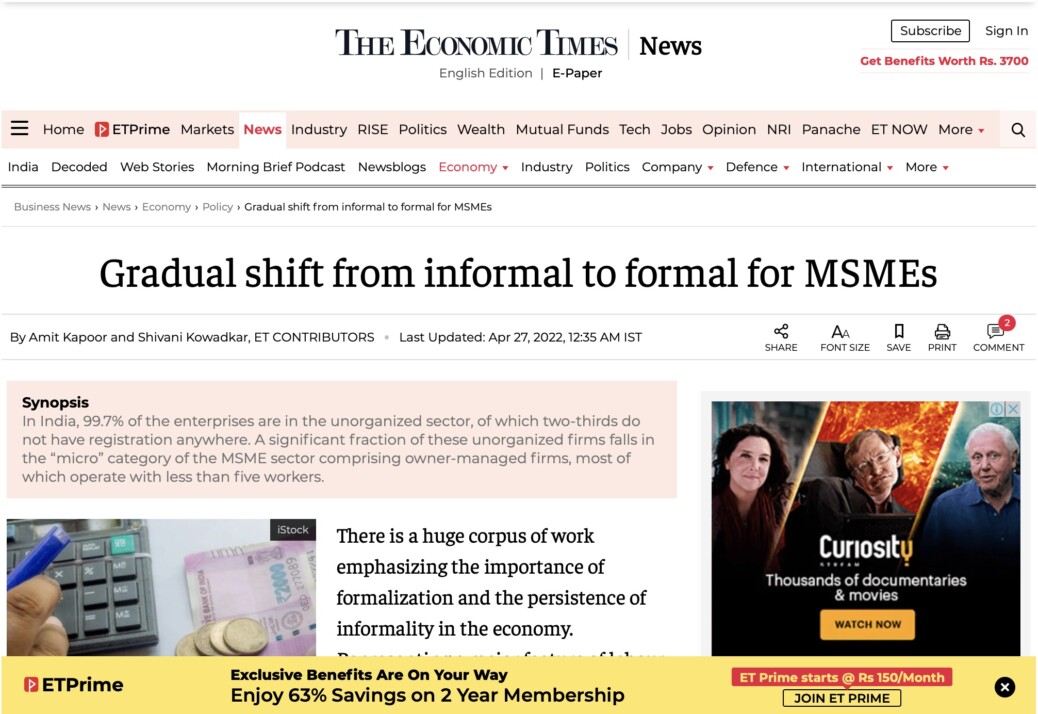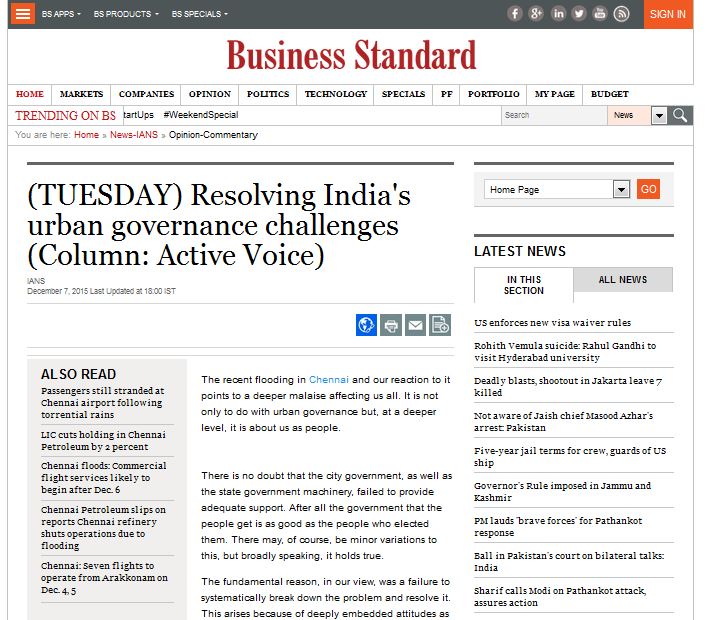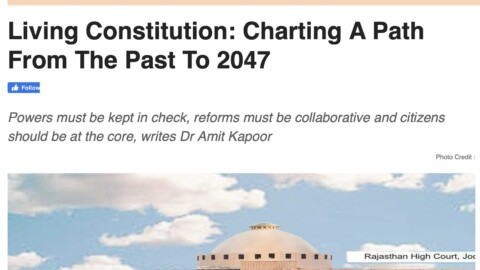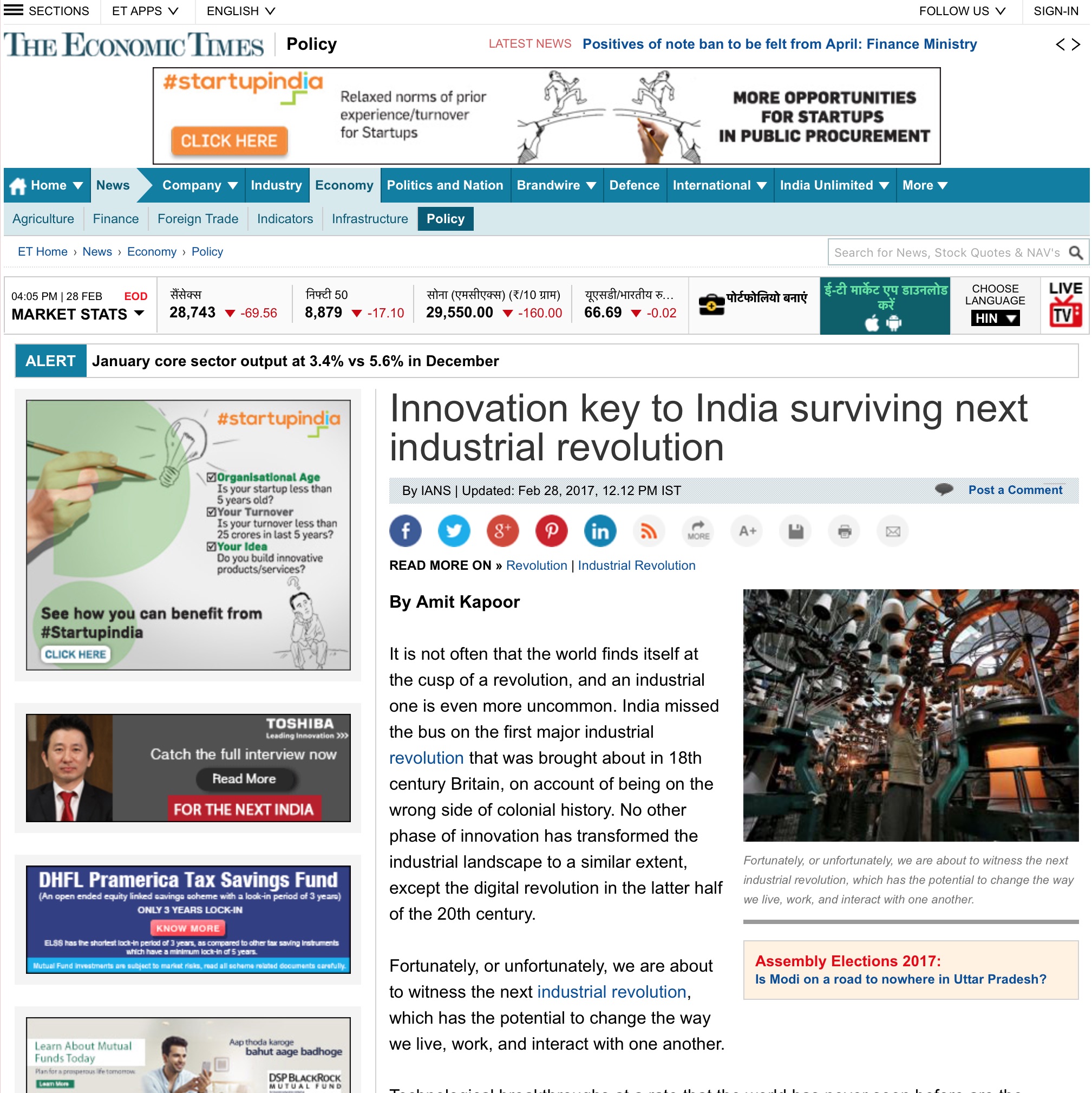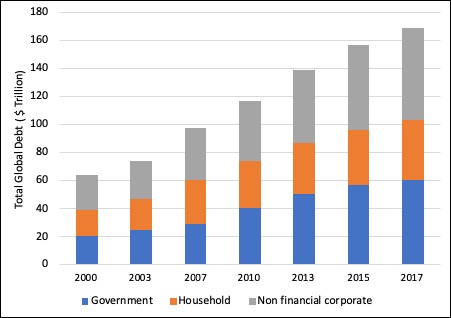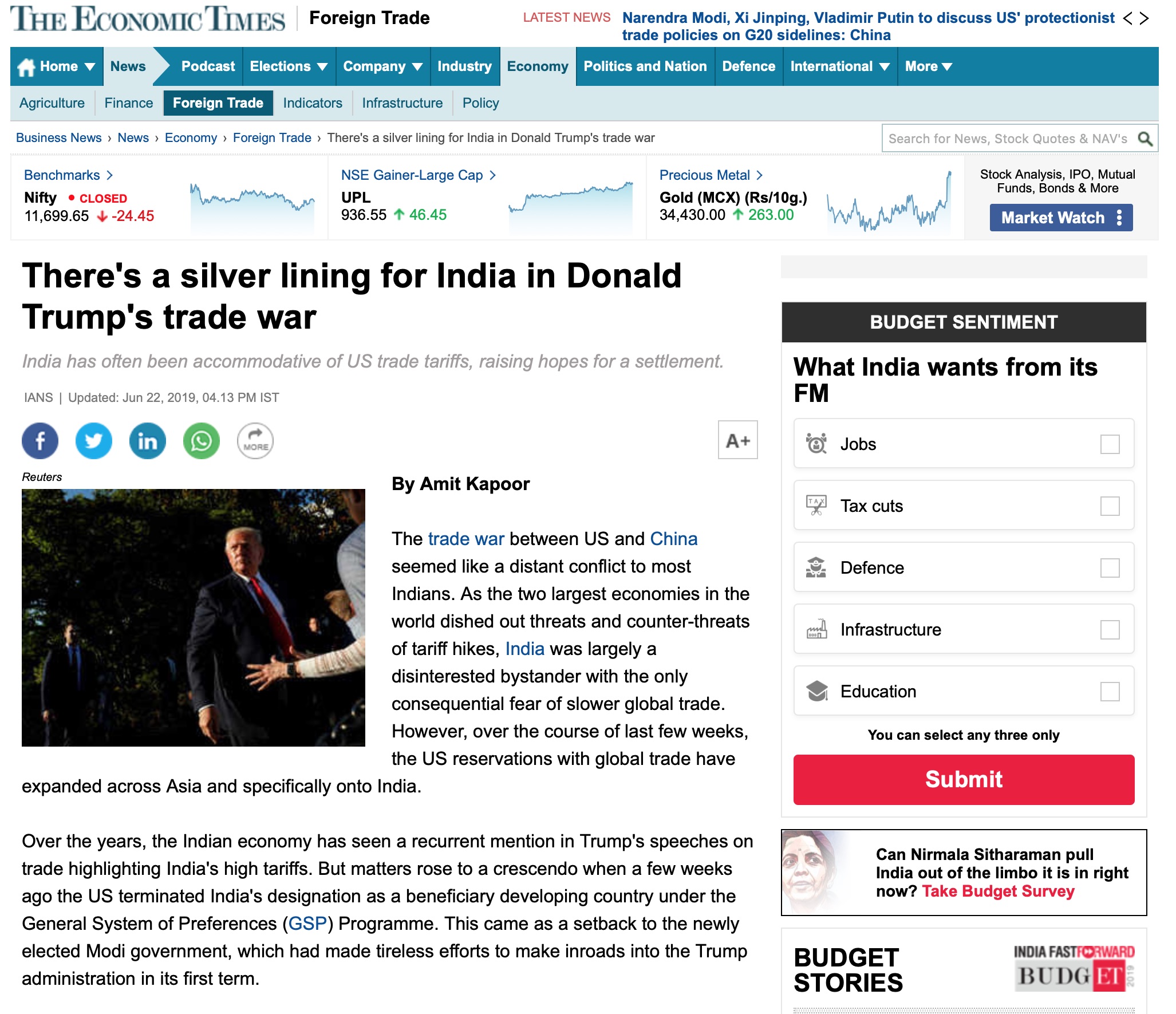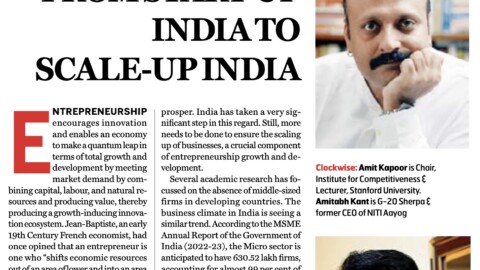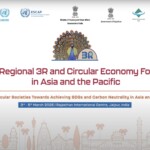Informal to Formal for MSMEs: A Gradual Shift
There is a huge corpus of work emphasizing the importance of formalization and the persistence of informality in the economy. Representing a major feature of labour markets worldwide, the informal sector consists of activities operating outside the regulatory framework that would potentially add value to tax revenue and the GDP but go unaccounted. A recent estimate suggests that the informal sector still makes up about a third of low- and middle-income countries’ economic activity. The statistic is more glaring for Micro, Small and Medium Enterprises – the informal economy comprises more than 90% of Micro and Small enterprises globally. It is widely known that India is no exception to the prevalence of informality. In India, 99.7 per cent of the enterprises are in the unorganized sector, of which two-thirds do not have registration anywhere. A significant fraction of these unorganized firms falls in the “micro” category of the MSME sector comprising owner-managed firms, most of which operate with less than five workers. After years of discussions around increasing formalization in the sector, it is time we truly understand that the shift to formality is a prolonged process. It will take an all-of-economy integrated approach which evaluates challenges faced by enterprises at every point in their trajectory – from reasons to stay unregistered to issues faced after a formal registration. Understanding why firms choose to operate informally is a starting point.
Viewing formalization from an informal enterprise’s perspective is critical. Formalization entails certain costs as well as benefits for undertaking economic activities. If the regulatory apparatus is complex and imposes extensive costs, it serves as a primary disincentive for firms to register. This is particularly true for smaller firms with narrow profit margins who find the costs of compliance financially burdensome. Similarly, stringent and complex labour laws also serve as one of the reasons for firms to remain small and unregistered. It is crucial for small firms to be aware of the benefits of formalization. The benefits can include access to various government subsidies and incentives, enforceable commercial contracts, tax breaks, access to formal credit channels and other incentives. With greater access to such resources, it is easier to increase productivity through technological enhancements in production and digitization. However, if the regulatory ecosystem incentivizes staying small without providing adequate benefits to scaling up and formalizing, the lure of informality will prevail. As Dagmar Walter, Director of the ILO Decent Work Technical Support Team for South Asia, articulates, “When the benefits of formality outweigh the costs, rates of informality are likely to decline”. However, while a cost-benefit perspective helps policymakers get a perspective on persisting informality among micro enterprises, it is still a limited approach. It needs to be supplemented with a holistic development strategy creating pathways toward formalization. The point to be emphasized here is that the reasons to remain small and informal are not always related to tax and other legal compliance cost considerations. Low productivity and a lack of competitiveness can be hindering the informal-to-formal shift for many micro enterprises, as they may not have the capacity to survive competitors in the formal sector. If small firms owe their survival to informality, it is evident that they will see merit in continuing informal. Thus, a holistic development strategy empowering micro enterprises to flourish in the formal space is essential. Boosting investment in human capital through education, skilling, and health will not only enhance the entrepreneur’s competitive capability but also that of the talent pool available for employment in the sector.
Given the various reasons firms stay unregistered, tackling informality calls for a multi-pronged approach. It is not an overnight switch but a gradual shift by creating the right environment for firms to be attracted towards formalization. Falling out of the formal purview makes it hard for schemes and programmes to reach them. Put simply, to be able to target reforms, we must be aware of the existence of potential beneficiaries. The slew of initiatives put forth by the government may not be able to reach these unregistered enterprises, further keeping them at a low-capacity level.
Reforms must not stop at the successful registration of an economic unit. We must strive to create pathways for registered units to thrive and achieve higher productivity levels. Considering that the number of unincorporated non-agricultural enterprises (excluding construction) grew by 27 per cent from 2010-11 to 2015-16, assessing factors and causes of informality for each sector and geographic level is the need of the hour. There are multiple micro enterprises with untapped potential. With appropriate incentives to formalize and reforms to help them scale up, we can unleash their potential in driving economic growth and paving the way towards the goal of achieving decent work for all.
The article was published with Economic Times on April 27, 2022.
